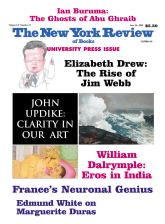Sixty pages or so into Ma Jian’s novel Beijing Coma, the hero, Dai Wei, is troubled by the memory of a harrowing anatomy lecture that he attended as a university student. Taught by “a celebrated cardiovascular specialist,” the class observed the dissection of the fresh corpse of a criminal whom the government had just executed (in celebration of National Day) and whose organs had been speedily harvested for transplant.
Dai Wei’s moral revulsion was tinged with personal anxiety, for this was not the first time that politics had placed a serious strain on his love life. In high school, he had been interrogated and beaten by the police for meeting his girlfriend in a cement culvert, the only place they could be alone. And now the distressing physiology lesson reminded his college girlfriend of why she had been so reluctant to obey her parents’ wish that she cross the border from Hong Kong to study medicine in the brutal, unenlightened People’s Republic. How she longed to go to Canada to major in music or business management!
Like much else in Beijing Coma, this incident provides telling and subtle information about the characters and their milieu. At the same time, the insight it offers into Dai Wei’s academic background enables the attentive reader—in whose intelligence Ma Jian has unusual faith—to answer a nagging question that has been implicit since the book’s opening paragraphs. That is the mystery of why Dai Wei’s earthy, lyrical, and, despite everything, humorous narrative voice is so heavily inflected with scientific terminology—“a bioelectrical signal darts like a spark of light from the neurons in your motor cortex,” in Flora Drew’s exemplary translation. The technical language of the surgical theater has been used, as it will be throughout, to convey Dai Wei’s efforts to diagnose his own medical condition; he is asleep much of the time, and in fact, he gradually realizes, he is in a coma into which he has fallen after being shot in the head during the 1989 demonstration-massacre in Beijing’s Tiananmen Square.
For much of the book, Dai Wei lies in bed, paralyzed, mute, his eyes shut, cared for by his mother, and hearing himself referred to as “a vegetable.” Yet he is acutely conscious of his situation and painfully aware of the past, which he searches for scraps of memory to assemble a coherent self. A doctor whom Dai Wei’s mother consults informs him that
if I want to come out of my coma, I must make a deliberate effort to remember events I’ve chosen to forget. Before I return to my old life, I must first complete this inward journey into my past.
This Issue
June 26, 2008





